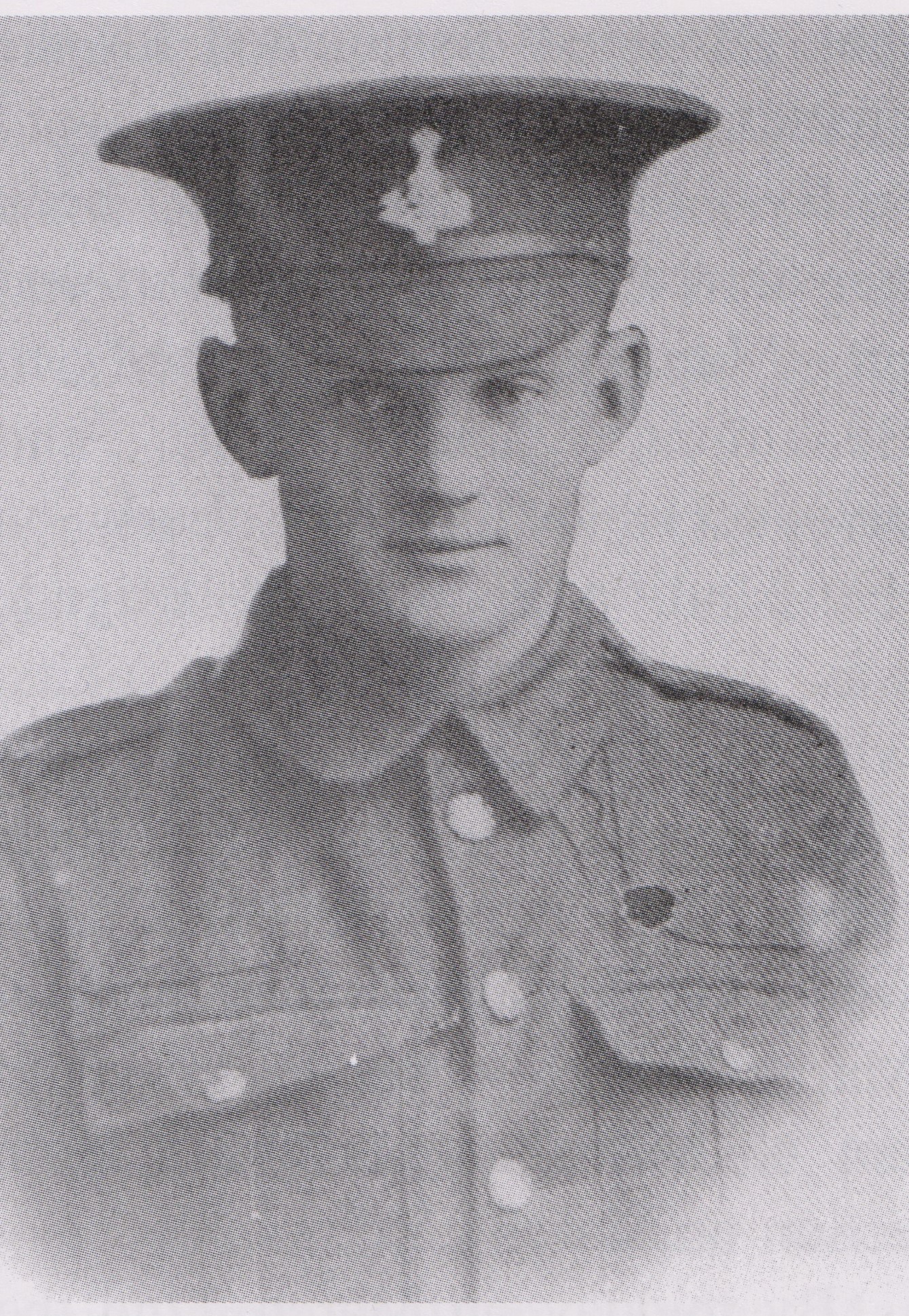
Harold was born in 1894 in Well, a small hamlet to the east of Masham in North Yorkshire. He was the eldest of five children of Thomas and Elizabeth Binks. Thomas had also been born in Well, whereas Elizabeth was from Thornton Watlass near Bedale. Thomas was employed as a gamekeeper on the nearby estate of Snape Park.
Harold enlisted in Leyburn in 1915 and joined the 13th Battalion Yorkshire Regiment. The Battalion mobilised and arrived in France on June 6th 1916. The Battalion went into the front line near Loos and would see action at The Battle of Ancre on the Somme. In 1917 they saw action during the German retreat to the Hindenburg Line and at the Battle of Cambrai.
March 21st 1918 saw the start of the German Spring Offensive. At the action between Arras and Bapaume on the 22nd March Private Harold Binks was killed. His body was never recovered. He is commemorated on the Arras Memorial. He was 23 years of age.
Explore more memories from the ribbon
-
Fred Shaw
Fred, the fourth child of five to Ned and Ann Shaw, was born around 1884 at Slaithwaite near Huddersfield. His father Ned was a railway signal man and part time photographer. Two of Fred’s brothers would emigrate to Canada before the Great War began. Fred trained as a journeyman tailor and travelled to seek employment. Whilst in the Hawes district he met and married a girl from Hawes, Mary Elizabeth Blades, in November 1909. Fred enlisted in Hawes in June 1916, joining the 9th Battalion Yorkshire Regiment. Fred went to France in September 1916. Private Fred Shaw was killed on the first day of The Battle of Messines on the 7th June 1917 aged 33. Fred’s body was never found and his name is commemorated on the Menin Gate at Ypres. Sadly, just four and a half months after his father died, their son Jimmy died aged 5.
-
Harold Moore
Harold Moore was born around 1898 at Mirkport near Hawes, with his twin sister Hilda. He was the second youngest of a family of ten children to Richard and Mary Moore. In 1901 they were living at Mirkpot Farm on the Hawes-Ingleton road where Richard was a farmer and stonemason. By 1914 they were living at Catriggs Farm near Hawes. Harold enlisted in Leyburn in May 1918 joining the 9th Battalion Yorkshire Regiment. He arrived in France on October 11th, just one month from the Armistice and the cessation of hostilities. As Harold joined his Battalion, it had just come out of front line action in the Premont area between St. Quentin and Cambrai. A week later on the 24th October the Battalion was involved in capturing a machine gun post in a wooded area. During this action Harold, along with a number of other casualties, was severely wounded and later died. He had been in the war just 13 days. Private Harold Moore is buried in the Premont British Cemetery SE of Cambrai. He was just 20 years old.
-
Ernest Pilcher
Peter Seaden-Jones visited us at a drop-in session at Richmond Station. From a photograph of his grandfather, we have managed to piece together the key details of Ernest John Pilcher’s war story. Ernest John Pilcher was born in Pietermaritzberg, Natal, South Africa in around 1881. According to the 1891 census, he appears to live in Chester as the 9 year old son of Frederick and Lucy Pilcher. He has a sister Edith and two brothers Archie and Arthur. His siblings are born in the U.K. but his father’s occupation as an Army Warrant Officer may explain Ernest’s birth in South Africa. On the 26th of December 1907 at the age of 26 he married Florence Alltimes at the Balham Hill Ascension church in Streatham. Florence was 23 years old at the time of their wedding. His occupation is recorded as a grocer. In the 1911 census Ernest and Florence were recorded as living at 23, Sussex street in Pimlico. He is listed as “Manager in the business of grocery stores”. Marjorie Edith their daughter was just 2 years old. At the age of 34 years and 6 months he enlisted in the army on the 22nd of November 1915. By this time his attestation record shows that he and Florence have a second daughter Peggy Dorothy born on the 6th of July 1913. Their address is now 20, Bellenden Road, Camberwell and his occupation is recorded as a “Traveller”. Although originally assigned to the Royal Field Artillery he transferred to…
